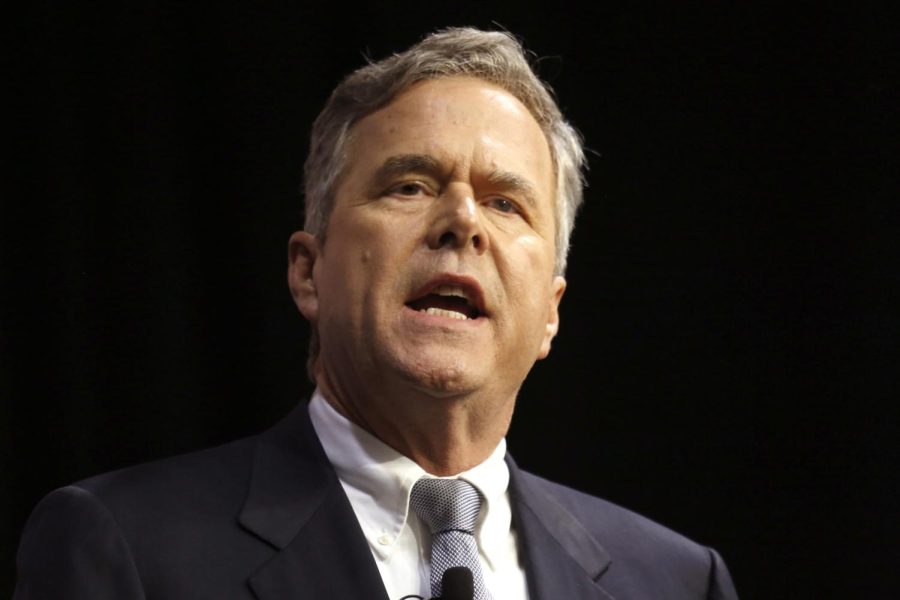Jeb Bush drops out of presidential race
Republican presidential candidate Jeb Bush speaks at a rally in Charleston, South Carolina, including President George W. Bush and and former first lady Laura Bush, on Monday, Feb. 15, 2016.
Jeb Bush, brother of former president George W. Bush and son of former president George H. W. Bush, suspended his presidential campaign Saturday.
The announcement was similar in tone to his presidential bid announcement in Miami last June, where he outlined a strategy built on his family’s legacy.
“My message will be an optimistic one,” Bush said. “I will campaign as I would serve: Going everywhere, speaking to everyone, keeping my word, facing the issues without flinching and staying true to what I believe.”
Bush began his campaign with multiple political analysts citing him as an early front-runner full of scores of financial and political help.
But despite his family ties and money, the former two-term Florida governor’s campaign was known for its struggle for relevance and his failing battle with GOP presidential front-runner Donald Trump.
Bush’s luck in primary season seemed to be running out, as the candidate finished in the second half of the GOP pack in New Hampshire and South Carolina.
After finishing fourth in South Carolina’s primary on Saturday, Bush ended his campaign while his tearful wife looked on.
The end of Bush’s campaign also leaves behind questions about the candidate’s spending in relation to his poor showing in the polls-something that many of his supporters are now connecting to his defeat.
Reuters contacted 16 of Bush’s major donors, 11 of which questioned Bush’s spending during his campaign.
Data from Reuters shows that Bush’s spending was extravagant, with more than $80 million being spent on travel, advertisements, and events at luxury hotels.
The cited amount is more than Trump, Marco Rubio and Ted Cruz have spent on their respective campaigns – all of whom have consistently polled above him.
Bush’s campaign also made news in late 2015 when it announced pay cuts for many of its lead staffers, many of who received large unsustainable payouts.
Bush’s Super PAC Right to Rise, spent $70 million on advertisements alone, making up almost 30 percent of advertising costs spent by both Republicans and Democrats.
However, Bush suffered most from his rivalry with Trump, who bought jebbish.com, questioned Bush’s toughness on crime and immigration, questioned his integrity and posted several demeaning tweets about the candidate.
Bush’s upcoming political plans are unknown.
Mitchell Felan is a politics correspondent for The Kent Stater. Contact him at [email protected]



